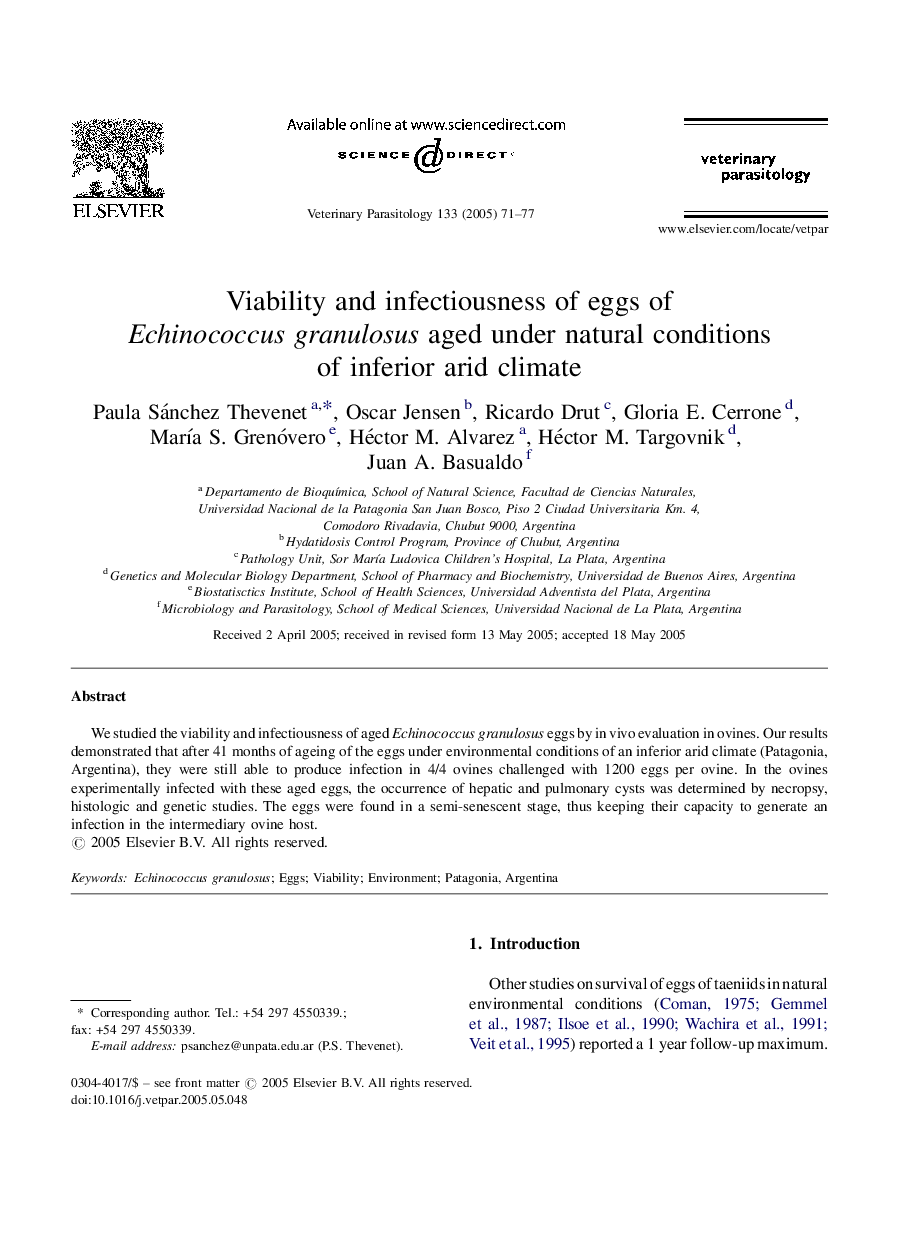| Article ID | Journal | Published Year | Pages | File Type |
|---|---|---|---|---|
| 8990997 | Veterinary Parasitology | 2005 | 7 Pages |
Abstract
We studied the viability and infectiousness of aged Echinococcus granulosus eggs by in vivo evaluation in ovines. Our results demonstrated that after 41 months of ageing of the eggs under environmental conditions of an inferior arid climate (Patagonia, Argentina), they were still able to produce infection in 4/4 ovines challenged with 1200 eggs per ovine. In the ovines experimentally infected with these aged eggs, the occurrence of hepatic and pulmonary cysts was determined by necropsy, histologic and genetic studies. The eggs were found in a semi-senescent stage, thus keeping their capacity to generate an infection in the intermediary ovine host.
Related Topics
Life Sciences
Agricultural and Biological Sciences
Animal Science and Zoology
Authors
Paula Sánchez Thevenet, Oscar Jensen, Ricardo Drut, Gloria E. Cerrone, MarÃa S. Grenóvero, Héctor M. Alvarez, Héctor M. Targovnik, Juan A. Basualdo,
